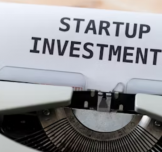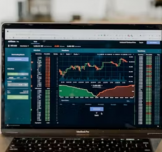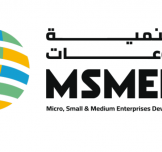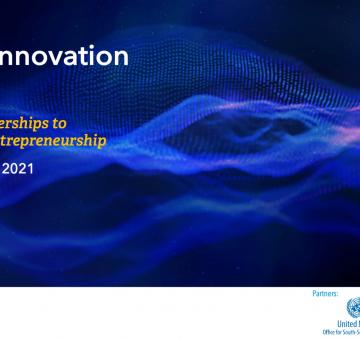Mohamed Attia: How does Egypt compete in the race of startups in the field of clean technology?

In Egypt and across Africa, projects in solar, wind, and green hydrogen are often stalled by issues like electrical grid integration, site permits, and access to government land.
Policies concerning intellectual property protection, carbon credits, and energy pricing are either inconsistent or underdeveloped, complicating the work of startups in sectors such as waste-to-energy, green hydrogen, and electric vehicle (EV) charging. Numerous innovative clean technology ideas fail to reach the market due to a shortage of testing laboratories, engineering talent for prototyping, and the industrial guidance necessary to support entrepreneurs.
Egypt is not alone in these struggles. Competing economies like India, Morocco, Kenya, and Brazil are actively developing policy frameworks to support entrepreneurs, mitigate investment risks, attract global partners, and foster local supply chains. In Egypt, the Ministerial Committee for Entrepreneurship has begun discussions with clean technology startups, signaling the government's commitment to this vital sector and its recognition of its role in sustainable development. However, to stay competitive, Egypt must rapidly expand these efforts to include comprehensive policies and concrete initiatives that promote innovation and facilitate market entry for startups.
Egypt's Renewable Energy Ambitions
Egypt's renewable energy portfolio is growing significantly. The Benban Solar Energy Project is a prime example, having become one of the world's largest solar power complexes and solidifying Egypt's position as a key player in the sector. The government has also signed over 20 Memoranda of Understanding (MoUs) with international partners for green hydrogen, solar, and wind energy projects. While these steps are promising, they must be integrated into a comprehensive ecosystem that supports clean technology startups, as these startups are crucial for activating value chains in the clean energy sectors, turning projects into lasting industrial value.
Investment Landscape and Global Competition
In 2024, Africa saw a 28% drop in venture capital funding, totaling $2.6 billion, with only 17% directed towards climate projects—half the amount from 2023. While the total for clean technology investment in 2023 remained stable at $471 million compared to 2022 (reflecting smaller deal sizes and an emphasis on early-stage investments), it fell to approximately $235-250 million in 2024. Despite this, clean technology remained among the top three most active sectors alongside fintech and AI. Investors are increasingly prioritizing "quality over quantity," with the average transaction size rising 32% to $2.5 million, focusing more on impact-oriented investments and Environmental, Social, and Governance (ESG) standards.
The global clean technology market is highly competitive, with trade tensions impacting market access. The U.S., EU, and China are boosting domestic manufacturing, while countries like Malaysia and India are securing future positions through proactive policies, not just investment.Egypt must adopt a similarly proactive approach to maintain its relevance. For instance, despite abundant solar resources, continued reliance on imported technology makes Egypt vulnerable to global price fluctuations and supply chain disruptions.
Green Hydrogen and Innovation Opportunities
Egypt's ambitious green hydrogen plans are supported by numerous MoUs and strong international interest. However, to translate these ambitions into sustainable exports, Egypt needs to develop a clear regulatory framework, invest in electrolyzer research and development programs, and offer incentives that foster local value creation.
Egypt aims to produce 5 million tons of green hydrogen annually by 2040, presenting vast opportunities for startups to innovate across the entire value chain. This includes manufacturing electrolyzers, improving processes and maintenance, developing AI-supported hydrogen systems, surveillance software, and reusing by-products like oxygen and heat. With existing R&D labs in universities and the private sector, along with support from development finance institutions, Egypt can establish itself as a regional green hydrogen technology hub.
Egypt's innovation ecosystem can flourish through startups focused on energy-efficient buildings, solar desalination and water reuse, smart irrigation and climate-resilient agricultural technology, waste sorting, advanced recycling, and smart logistics for waste collection. Globally, inspiring models exist for supporting clean-tech startups. For example, India's International Clean Energy Innovation Centre provides tailored equipment, combining public and private funding with access to major electricity distribution company facilities. Singapore's Ecolabs-COI adopts a similar strategy, building relationships with businesses that host real-world testing for startup technologies. In contrast, the UK's Energy Systems Catapult Living Labs offers opportunities to test smart home solutions in residential properties equipped for field trials.
Fostering an Integrated Ecosystem
Local innovation in electrolyzer design, solar panel assembly, and electric mobility architecture can unlock significant export potential and reduce Egypt's reliance on imports, particularly for mega-projects. Developing an electric mobility infrastructure, including charging stations and battery management systems, with a priority given to local startups for design and deployment, is a critical step. Establishing clean technology export centers in collaboration with the African Continental Free Trade Agreement could grant Egyptian startups access to African and global markets, boosting economic competitiveness.The success of this ecosystem hinges on a robust partnership among the government, private sector, and funders. The private sector plays a vital role in investing in R&D, partnering with universities, incubating startups, and jointly developing infrastructure. Policies should be designed to incentivize this participation through incentives, risk-sharing models, and regulatory simplification. The government must transition from merely a regulator to a key partner, acting as an early client and co-innovator. Furthermore, integrating clean technology companies with other sectors like mobility, agriculture, and water will enhance opportunities for innovation and growth.
Education and International Collaboration
Egypt must align its education and workforce development with its goals to support startups. Integrating clean energy and digital systems into university and technical curricula is essential to meet market demands. Capacity-building programs and university incubators can transform promising student ideas into viable business ventures. International partnerships should extend beyond just funding to prioritize knowledge transfer, technical cooperation, and joint R&D, ensuring Egypt actively contributes to global innovation rather than simply receiving it.Egypt's journey mirrors that of many nations: grand ambitions in infrastructure, yet gaps in startup support strategy. The key differentiator will be Egypt's speed and effectiveness in connecting these missing pieces. The next five years in Africa will be defined by resilience, regional integration, and addressing global challenges.
If Egypt successfully builds a comprehensive ecosystem that champions clean-tech startups, it will secure a pivotal role in the global green economy, unlocking new horizons for sustainable growth, job creation, and technological sovereignty in Africa and the Middle East.





































































EgyptInnovate site is not responsible for the content of the comments